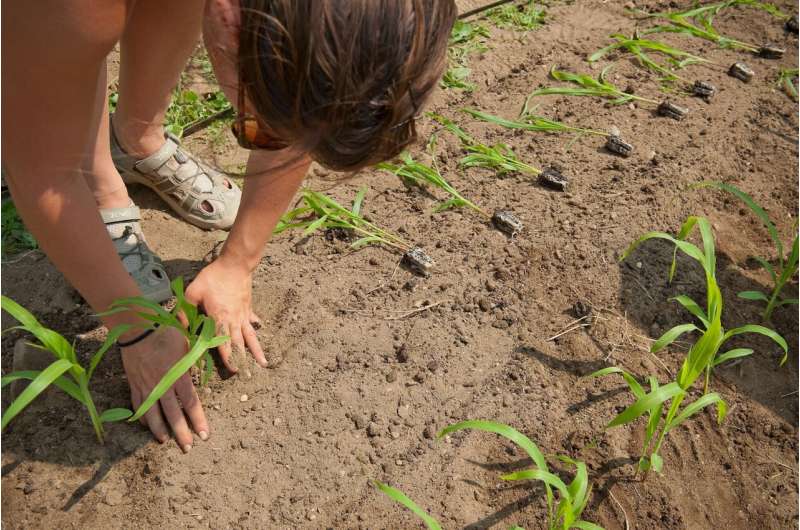This article has been reviewed according to Science X's editorial process and policies. Editors have highlighted the following attributes while ensuring the content's credibility:
fact-checked
peer-reviewed publication
trusted source
proofread
In rural states, gardening and foraging helped prevent hunger during COVID: Study

New research on rural New Englanders shows that gardening, hunting, fishing and other HWFP activities are important tools for maintaining food security through extreme events, such as pandemics or climate change events.
University of Vermont and University of Maine researchers found that both food insecurity and home and wild food production (HWFP)—gardening, hunting, fishing, foraging, and having "backyard" poultry or livestock—increased significantly during the COVID-19 pandemic, and those who undertook HWFP activities exhibited improved food security nine to 12 months later.
The paper, published in Scientific Reports, surveyed over 1,000 individuals in rural Vermont and Maine (the two most rural states in the country) to identify their food security and food sources.
Researchers hope that policymakers will consider how HWFP might lead to a more resilient food system. "Home and wild food production is not a silver bullet, but it is a potential solution set that has been largely overlooked," said Meredith Niles, Associate Professor at the University of Vermont, who led the study.
Programs that support HFWP are often overlooked by policymakers, but the research suggests that these activities could bolster food security, especially during ever more frequent crisis situations.
"Even during normal times, there are many barriers to food access especially for people experiencing poverty. When the COVID-19 pandemic began, there were additional barriers including travel restrictions, stay at home orders, and disruptions to the supply chain," said Rachel Schattman, Assistant Professor of Sustainable Agriculture at the University of Maine.
"While there were a variety of food assistance programs, no one had really looked at how self-provisioning things like hunting, gardening, canning, foraging and raising backyard animals contributed to food security."
There was anecdotal evidence in the early days of the pandemic about people starting gardens and stories about canning jar shortages, but Niles says this paper brings quantitative data to back up those stories.
"We were able to actually show, at a large scale with significant data, that people who did home and wild food production, especially gardening, in the early part of the pandemic, were more likely to be food secure nine to 12 months later," said Niles. "It's exciting because we haven't really seen this scale of data before and over multiple time points to assess this issue."
"We've suspected that producing some of your own food through hunting, fishing, foraging, gardening helps people's food security. This is the best evidence yet that we have that producing your own food makes a difference," said Sam Bliss, postdoctoral fellow at the University of Vermont who was involved in the research.
One key takeaway from this report was that individuals who were newly food insecure during the pandemic seemed to be the best at recovering from food insecurity with home and wild food production, as compared to those food insecure also before the pandemic.
"Our team is really interested to understand why chronically food insecure people in particular don't seem to be able to use home and wild food production in the same way to improve food security as other people," said Niles. "We have some information on the barriers they face and are exploring other work to assess how to overcome these issues."
"We need policies and programs that make producing your own food more accessible to the people who could stand to benefit the most from it," said Bliss.
More information: Meredith T. Niles et al, Home and wild food procurement were associated with improved food security during the COVID-19 pandemic in two rural US states, Scientific Reports (2024). DOI: 10.1038/s41598-024-52320-z



















